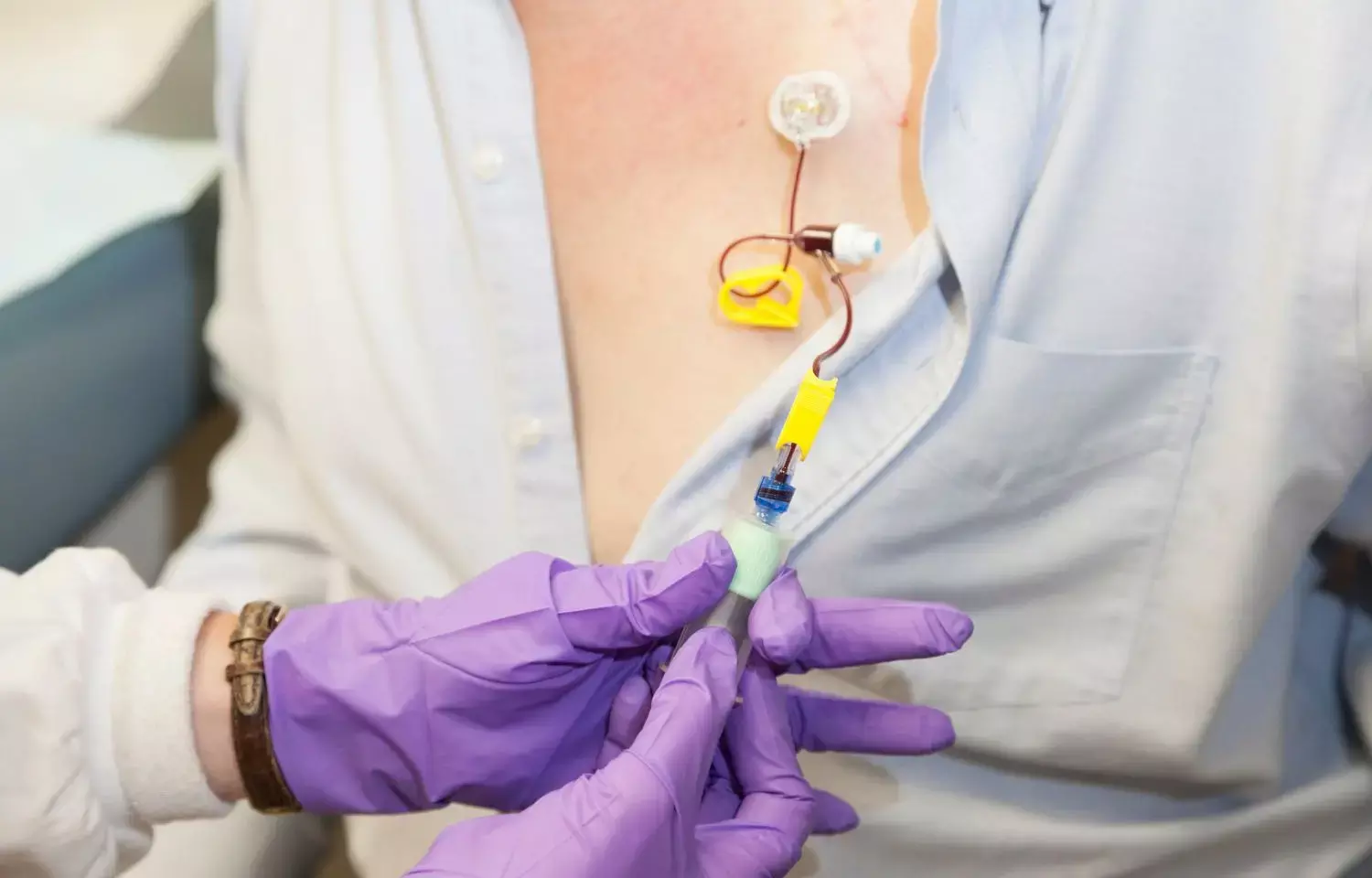- Home
- Medical news & Guidelines
- Anesthesiology
- Cardiology and CTVS
- Critical Care
- Dentistry
- Dermatology
- Diabetes and Endocrinology
- ENT
- Gastroenterology
- Medicine
- Nephrology
- Neurology
- Obstretics-Gynaecology
- Oncology
- Ophthalmology
- Orthopaedics
- Pediatrics-Neonatology
- Psychiatry
- Pulmonology
- Radiology
- Surgery
- Urology
- Laboratory Medicine
- Diet
- Nursing
- Paramedical
- Physiotherapy
- Health news
- Fact Check
- Bone Health Fact Check
- Brain Health Fact Check
- Cancer Related Fact Check
- Child Care Fact Check
- Dental and oral health fact check
- Diabetes and metabolic health fact check
- Diet and Nutrition Fact Check
- Eye and ENT Care Fact Check
- Fitness fact check
- Gut health fact check
- Heart health fact check
- Kidney health fact check
- Medical education fact check
- Men's health fact check
- Respiratory fact check
- Skin and hair care fact check
- Vaccine and Immunization fact check
- Women's health fact check
- AYUSH
- State News
- Andaman and Nicobar Islands
- Andhra Pradesh
- Arunachal Pradesh
- Assam
- Bihar
- Chandigarh
- Chattisgarh
- Dadra and Nagar Haveli
- Daman and Diu
- Delhi
- Goa
- Gujarat
- Haryana
- Himachal Pradesh
- Jammu & Kashmir
- Jharkhand
- Karnataka
- Kerala
- Ladakh
- Lakshadweep
- Madhya Pradesh
- Maharashtra
- Manipur
- Meghalaya
- Mizoram
- Nagaland
- Odisha
- Puducherry
- Punjab
- Rajasthan
- Sikkim
- Tamil Nadu
- Telangana
- Tripura
- Uttar Pradesh
- Uttrakhand
- West Bengal
- Medical Education
- Industry
Low-Dose Olanzapine Effectively Reduces chemotherapy induced vomiting in Cancer Patients

A recent study discovered that a lower dose of Olanzapine (OLZ) is just as effective as the standard dose for chemotherapy-induced nausea and vomiting (CINV), while it also significantly reduced daytime somnolence in cancer patients, The outcomes were presented in San Antonio Breast Cancer Symposium 2023.
CINV poses a significant burden on cancer patients undergoing highly emetogenic chemotherapy (HEC). The standard 10 mg dose of Olanzapine, when combined with triple antiemetics (TAE), has demonstrated it's efficacy. However, the accompanying daytime somnolence has limited its widespread use. This prompted researchers to explore the potential of a lower dose of OLZ in conjunction with a single dose of steroids.
The randomized study included patients with solid tumors slated for anthracycline-cyclophosphamide and high-dose cisplatin chemotherapy. Patients were divided into two groups as one receiving the standard 10mg OLZ (standard arm) and the other receiving a reduced 2.5mg dose (experimental arm) with TAE. Evaluating the Complete Control Rate (CCR), including the absence of emetic episodes, no use of rescue medications, and no or mild nausea were the primary objective.
The study comprised a total of 267 analyzable subjects who demonstrated that the 2.5mg dose was non-inferior to the 10mg dose in controlling CINV without the need for delayed steroids. The CCR in the overall phase was comparable between the two groups (44.7% vs. 43.7%). Also, the lower dose significantly reduced daytime somnolence, with 65.2% in the 2.5mg group compared to 89.6% in the 10mg group (p < 0.001).
The outcomes of this study conclude that a low dose of 2.5mg Olanzapine is effective as the standard 10mg dose in controlling CINV during highly emetogenic chemotherapy. Also, the reduced dosage regimen shows superiority in reducing daytime somnolence and offers an effective alternative for cancer patients.
Source:
Bajpai J, Kapu V, Rath S, et al. A randomized, open-label phase III trial evaluating low- dose vs standard-dose olanzapine with triple antiemetic therapy for prevention of highly emetogenic chemotherapy- induced nausea and vomiting in solid tumors (OLAnzaPiNE). Presented at SABCS 2023. December 5-9, 2023. San Antonio, TX. Abstract RF01-08
Neuroscience Masters graduate
Jacinthlyn Sylvia, a Neuroscience Master's graduate from Chennai has worked extensively in deciphering the neurobiology of cognition and motor control in aging. She also has spread-out exposure to Neurosurgery from her Bachelor’s. She is currently involved in active Neuro-Oncology research. She is an upcoming neuroscientist with a fiery passion for writing. Her news cover at Medical Dialogues feature recent discoveries and updates from the healthcare and biomedical research fields. She can be reached at editorial@medicaldialogues.in
Dr Kamal Kant Kohli-MBBS, DTCD- a chest specialist with more than 30 years of practice and a flair for writing clinical articles, Dr Kamal Kant Kohli joined Medical Dialogues as a Chief Editor of Medical News. Besides writing articles, as an editor, he proofreads and verifies all the medical content published on Medical Dialogues including those coming from journals, studies,medical conferences,guidelines etc. Email: drkohli@medicaldialogues.in. Contact no. 011-43720751


